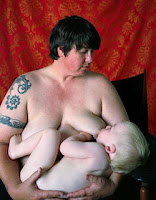School's out for Summer! School's out FOREVER!
The time has come. After 3 grueling years of non-stop classes, extracurriculars, work, writing, presenting, traveling, home work, and more, I am FINALLY GRADUATING!
It feels a little bit anti-climactic, to tell the truth. I was much more relieved when my thesis was approved and turned in. That felt like a momentous occasion! But all my accomplishments were hard-won, and I am really excited to put my new degrees behind my name.
I really do feel like an "expert" now, which I would not have felt comfortable calling myself before grad school! So thank you, grad school, for beating the knowledge and skills into me.
Anyone who thinks that grad school will be just like undergrad, I have to agree with what everyone told me - It is not. There is a LOT more time and effort involved. It is less about the experience and more about building your career. You have to be self-motivated. It is about a lot more than just the coursework. Every single moment must be spent gaining experience, growing your skills, and making connections. You apply to every job, every conference, every volunteer opportunity. Attend every community event, fundraiser, workshop and seminar as you possibly can. Apply for every scholarship, every leadership position, and every training.
My experiences in my public health department were very different than my experiences in my anthropology department. I am more than glad that I have both perspectives. Public health was great for growing my actual hands-on skills, helping me make connections, funding me, and giving me an opportunity to see the direction my work will probably take in the future. However, my public health classmates and courses were somewhat (on the whole, not as a rule), less motivated and rigorous than my anthropology classmates and coursework. Anthropology provided my with rich discussions, challenging reading assignments, theoretical foundations, and understanding the larger systems connections that sometimes public health lacks. There are no big long discussions about race, gender, class and so forth in public health. The way PH discuss health systems is dry. Anthropology, on the other hand, makes it relevant and fascinating. So, I can see where my anthropology colleagues are lacking an understanding of working in public health, and where my public health colleagues are lacking a vital anthropological perspective.
But enough on that now...
I HAVE TO GO GRADUATE!











